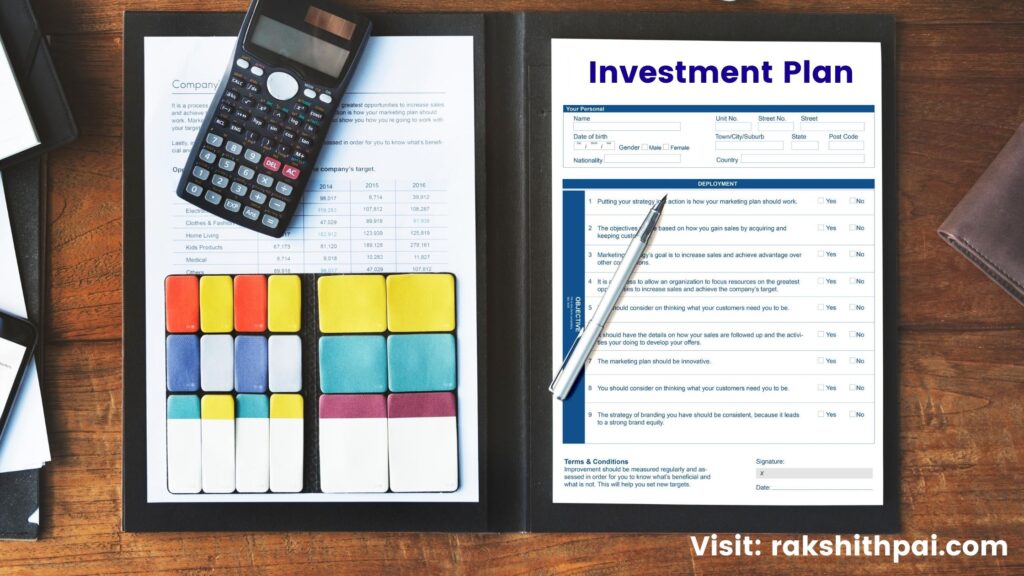Table of Contents
Introduction to Indian Income Tax:
Sir James Wilson instituted income tax in India for the first time in 1860 to compensate for the damage incurred in 1857 as a result of the “military mutiny.”
In 1886, a separate income tax statute was enacted; this act remained in existence for a long period of time, subject to periodic modifications.
Today, Individual taxpayers will be required to pay income tax according to the slab system into which they fall. Individuals may fall into a different tax bracket depending on their income. As a result, people with a greater income will be required to pay a higher tax rate.
The slab system was implemented to ensure that the country’s tax structure remained equitable. The slabs are subject to change following each budget release.
Watch the attached video to get a better understanding of Income Tax, Old & New Schemes.
Now after watching the above video (considering you did watch), you know what you are supposed to pay as Income Tax. Do you think that’s all the tax you pay?
Well, think again!
This is just the Income Tax or as we call it, Direct Tax. How about Indirect Tax also known as “GST”?
Any and all consumption I and you make will be charged along with the tax. Thus, most of us already pay tax without even knowing the fact that we are paying tax. Hence, it is reasonable for us to make efforts to avoid paying tax legally. It is a Financially wise decision to pay lesser tax when it is allowed by the law.
Watch Mr.Kerry Francis Bullmore Packer AC, an Australian media tycoon, and a Billionaire. This is what he got to say in regards to the Income-tax. CLICK HERE! to watch the video. Where Mr.Kerry Francis says, “Everyone must make efforts to minimize their tax!” He was a billionaire.
Reading forward, you’ll understand all the perks and tricks to avoid tax or pay lesser tax.
15 Best Ways to Save Tax:
When the subject of how to minimize taxable income arises, there are several common tax sections where you may save money. These include sections 80C, 80CCC, 80CCD, 80D, 80DD, 80E, 80EE, and 80G etc. The sections, relevant exemptions & deductions, and other limitations for each are mentioned below.
If you are a salaried individual, taking advantage of these perks is certainly the best option for you. Many more exemptions are available in a wide range of situations, but these are the main ones that most people choose.
As is obvious, the majority of these exemptions are insufficient to pay for your basic necessities and costs. These allowances and exemptions are the first things you should learn about when you start planning your money management
There are two ways to Save Tax; (1) Via Investing in Certain Instruments and (2) Via Spending on Certain Expenses.
Save Tax by Investing:
Provident Fund (PF)
In 1968, India launched the Public Provident Fund (PPF) with the goal of mobilizing modest resources via investment and earning a return on them. It is sometimes referred to as a “save-plus-tax-savings” investment vehicle since it allows for the accumulation of a retirement corpus while saving on annual taxes. Anyone looking for a safe investment vehicle that allows them to defer taxes while earning guaranteed returns should open a PPF account.
The Public Provident Fund (PPF) plan is a long-term investment vehicle that pays an acceptable rate of interest and yields on the principal invested. Interest and dividends are not taxed under the Income Tax Act. Under this program, one must create a PPF account, and the amount deposited during the year is tax-deductible under section 80C.
Investments up to Rs.1,50,000 are exempt from income tax under section 80C. Invest as little as Rs.100 and as much as you want up to a maximum of whatever amount you want can be made in installments or via SIP in multiple tranches. Deposits into a PPF account must be made at least once a year for a period of fifteen years.
For More Information regarding the “Employee Provident Fund” – CLICK HERE!
Should You Invest In EPF?
National Pension Scheme (NPS)
The National Pension System (NPS) is based on a subscriber’s unique Permanent Retirement Account Number (PRAN). To promote savings, the government of India has made the system secure and appealing for NPS account holders.
Individuals who are salaried can obtain a tax exemption of up to Rs. 50,000 under section 80CCD (1B). This benefit is in excess of the Rs.1,50,000 limit under section 80C.
You may invest up to 10% of your pay and receive a tax deduction on the amount invested under section 80CCD (1) up to Rs.50,000. And, Section 80C of the Income Tax Act, 1961 limits this tax exemption to Rs. 1,50,000. So, a combined tax deduction of Rs.2,00,000 is allowed.
I.e, Individuals who are self-employed can seek a tax exemption of up to Rs.50,000 under section 80CCD (1B). This benefit is in excess of the Rs.1,50,000 limit under section 80C.
You may invest up to 20% of your yearly gross income and receive a tax deduction on the amount invested under section 80CCD (1). Section 80C of the Income Tax Act, 1961 limits this tax exemption to Rs. 1,50,000.
To Know the Importance of Having a Pension Account – CLICK HERE!
10 Simple Habits to Overcome Poverty and Become Rich!
Equity Linked Saving Scheme (ELSS)
The only type of mutual fund eligible for tax deductions under Section 80C of the Income Tax Act, 1961, is an ELSS fund, or equity-linked savings plan. By investing in ELSS mutual funds, you can get a tax rebate of up to Rs 1,50,000 and save Rs 7,800 to Rs 46,800 in annual taxes, considering your tax bracket.
The asset allocation of ELSS mutual funds is heavily weighted toward equities and equity-linked instruments, such as listed stocks (65% of the portfolio). They may also hold certain fixed-income securities. These funds have a three-year lock-in term, the shortest of any Section 80C investment.
You can invest as little as Rs.100 or as much as you can afford to invest. But, be sure to set aside the said investment for the next 3 years, because your investment in ELSS is locked for 3 years.
Based on how much risk the investor is willing to take, ELSS investments are mostly recommended for young people who have few financial obligations and don’t want to take on too much debt, have years to compound, and are capable of taking a risk.
For More Information regarding the “Equity Linked Saving Scheme” – CLICK HERE!
Equity Linked Savings Scheme (ELSS) Investing & its Benefits:
Savings Deposit (SD)
A savings account is a deposit account with a bank or other financial institution that earns interest. These accounts usually have low-interest rates, but their security and stability make them a good place to keep the money for short-term needs.
Under Section 80TTA of the Income Tax Act, you can deduct interest on savings accounts kept in a post office, bank, or cooperative organization. The requested exemption cannot exceed Rs.10,000.
If your interest income is less than Rs 10,000, you can deduct the full amount. I.e, Your deduction would be restricted to Rs 10,000. And, for that, you must take into account your entire interest income from all institutions with whom you have accounts.
Tax Savings for Senior Citizens Deposits:
Old age is frequently connected with health difficulties, both physical and mental, which have a significant financial impact. As a result, it is vital to give them suitable tax breaks.
Keeping this in mind, the government continues to introduce new laws aimed at simplifying the lives of older people. The 2018 Finance Budget has opted to increase the number of benefits available to our older folks. The adoption of a new provision – Section 80TTB – is one such significant modification in Budget 2018 (for older folks).
Section 80TTB is a provision that allows a taxpayer who is a senior citizen aged 60 years or older at any point during a fiscal year (FY) to deduct up to 50,000 earned as interest income from various banks & financial institutions.
A deduction from the gross total income of less than Rs 50,000 or a defined income is permitted u/s 80TTB.
Senior Citizens Savings Scheme (SCSS)
Senior Citizens Savings Schemes are available to everyone over the age of 60. They are long-term savings vehicles that offer enticing features and utmost security.
A Senior Citizens’ Savings Scheme (SCSS) is a government-sponsored scheme that provides retirement benefits. Senior citizens who live in India can contribute via SIP or lump sum to the plan, either alone or together, and get a steady income stream as well as tax benefits.
You can invest up to Rs.15 lakh in the SCSS account. And, the fund has a lock-in period of 5 years.
Please keep in mind that you can fund the account with a single payment. Thus, an account holder may run several accounts under the program, subject to the restriction that the total amount of deposits in all the accounts combined does not exceed Rs.15 lakh. Additionally, no more than one account may be created at the same deposit branch throughout a calendar month.
To Know the Benefits of Having a Senior Citizen Account – CLICK HERE!
10 Simple Habits to Overcome Poverty and Become Rich!
Sukanya Samriddhi Yojana (SSY)
Sukanya Samriddhi Yojana is a project that aims to improve the lives of female children in the country. Sukanya Samriddhi was developed to provide a savings vehicle for every family’s girl child. The SSY is valid for 21 years from the date of account establishment or until the girl reaches the age of 18 and marries.
Prime Minister Narendra Modi announced the Sukanya Samriddhi Yojana (SSY) initiative as part of the Beti Bachao Beti Padhao campaign to safeguard the future of a female children.
Your investment generates interest at a rate ranging from 7.5 percent to 9.0 percent under SSY. Additionally, you would receive tax benefits under section 80C on your investment, up to a maximum of Rs.1,50,000 in tax exemption on your investment.
To Know the Benefits of Having a Sukanya Samriddhi Account – CLICK HERE!
Life Insurance Premium
If you have purchased term life insurance, you may deduct the premium payments received under Section 80C of the Income Tax Act of 1961. This insurance might be in your name or in the names of your wife and kids. The exemption limit for life insurance premiums under Section 80C is fixed at Rs 1.5 lakhs.
In addition, the total amount of exemption that can be claimed should not be more than 10% of the amount that was agreed upon.
Insurance is also a form of Investment. We realize it’s important when it’s time for an uncertain event. Do not neglect to insure yourself and your loved ones. With Life insurance, upon the death of the insurer, the nominee of the insurer will get the amount insured.
Save Tax by Spending:
Medical Insurance
A taxpayer may deduct tax on premiums paid for medical insurance for themselves, spouses, parents, and dependent children under section 80D. This deduction is available to individuals and HUFs.
The maximum deduction varies according to age. A deduction of Rs 25,000 is available for the self, spouse, and dependent children.
Principal Payment on Home Loan
For most people, owning a home is a lifelong goal. The Indian government has a long history of encouraging residents to invest in housing. This is why a house loan qualifies for a Section 80C tax deduction. In addition, when you get a home loan to buy a house, you get a lot of tax benefits that help you pay less in taxes.
Section 80C allows a deduction for the main portion of the EMI paid throughout the year. The highest claimable amount is Rs 1.5 lakh.
However, this deduction cannot be claimed if the residential property is sold within five years of occupancy. Otherwise, the earlier deduction will be subtracted from your income in the year of sale.
Home Loan Interest
Home purchasers are eligible for an additional deduction under Section 80EE up to a maximum of Rs 50,000. To be eligible for this deduction, there are certain criteria that must be met.
Such as, a loan must be taken between April 1st, 2016, and March 31st, 2017. And, the amount of the loan must be Rs. 35 lakh or less, considering the property value is below Rs. 50 lakh.
Under section 80EEA, you can claim an additional deduction of Rs. 1,50,000. For this, you must have subscribed to a home loan between April 1st, 2019, and March 31st, 2022. The total stamp duty value of the said home must be below Rs. 45 lakh. And this benefit is available only to first-time home buyers. Also, this benefit is not allowable if you have claimed under section 80EE as mentioned above.
Electric Vehicle Loan Interest
The government provided an incentive to acquire an electric car in the 2019 Union Budget. The finance minister noted in his budget address that the initiative will incentivize improved batteries and registered e-vehicles. For the fiscal years 2020–21, a new section 80EEB allows for a deduction for interest paid on loans used to acquire electric cars.
Individuals may claim the deduction under this clause. No other taxpayer is eligible for this deduction. You can’t get any benefit from this provision if you are a HUF or AOP. You can’t get any benefit if you are a partnership business, a corporation, or any other type of taxpayer.
Section 80EEB allows for a deduction for interest payments up to Rs 1,50,000. A taxpayer Individuals who own an electric vehicle for personal use would be able to deduct the interest paid on the vehicle loan.
Know More about Electric Vehicle: CLICK HERE!
Top 11 Electric Vehicle Companies to Invest in India – 2022
Education Loan Interest
Not only can an education loan help you finance your at-home or even international studies, but it may also help you save a lot of money on taxes. If you took out an education loan and are now repaying it, the interest paid on the loan is deductible from your total income under Section 80E.
The deduction, however, is limited to the interest component of the EMI. The entire EMI on the educational loan is deductible as and when you repay the amount. Interest on loans is deducted beginning in the year in which you begin repaying the loan.
It is accessible for a maximum of eight years, beginning with the year in which you begin repaying the loan or until the principal and interest are entirely returned, whichever occurs first.
House Rent Paid
Section 10-13A of the Income Tax Act provides for a tax exemption on HRA. House rent allowances are provided by the employer. An HRA tax exemption is available on 50% of an employee’s pay if the employee resides in one of India’s metro cities.
Salaried individuals without their own homes will rent homes. Such expenses can be claimed as the House Rent Allowance (HRA) to offset some or all of their taxes.
This allowance is for expenditures associated with rental housing. If you do not rent your home, this allowance is entirely taxed.
Tuition Fees Paid
To encourage increased literacy and education for children in India, there are a variety of tax advantages available to individuals for the purpose of lowering their taxable income. The Indian government provides tax deductions and income tax exemptions for those who pay tuition fees for their children.
Payment of education or school tuition fees for children may be included in the remuneration structure of some paid people.
Section 80C of the Income Tax Act provides for tax deductions on tuition and education costs paid by parents for the purpose of educating their children. Taxpayers can claim up to Rs 1.5 lakh in deductions under Section 80C (as per the 2020–21 tax slabs), with additional investments also qualifying for this reimbursement.
A parent may deduct tuition expenses paid to a university, college, school, or other educational institution.
Conclusion:
According to the proverb, a penny saved is a penny earned. Tax planning is one method that might help you reduce your tax liability and enhance your income. The Income Tax Act allows deductions for a variety of investments, savings, and expenditures undertaken by a taxpayer within a certain fiscal year.
There are several other strategies to reduce your tax burden in India. Gifts upon marriage and inheritance from a will are free from taxation. You may be advantageous to your spouse and/or your children with medical insurance, and you may claim a tax deduction for it. In addition to the aforementioned tax-saving strategies, businesspeople may also deduct travel and dining expenses.
Salaried taxpayers can reduce their tax liability by using their leave travel allowances and housing rent allowances. Additionally, medical expenses and gratuities can be deducted to reduce income tax. Some firms accept compensation restructuring to reduce an employee’s tax liability. The government has put in place policies and systems to make it easier for people to pay their taxes.
It is crucial to remember that not all taxpayers are the same in terms of asset class, so individuals should select the instrument that best meets their specific requirements. Consideration should be given to the tax-saving instrument’s security, liquidity, and returns.
No financial choice should be made purely based on the product’s expected return. Your objective is not simply to reduce your tax liability but also to fulfill several other personal objectives. Consequently, one should always have well-defined goals and align their tax tools with those aims.
In this article, we have made efforts to explain various means available for Indian taxpayers to reduce their tax burden either via investment mode or expenditure mode.
Hope this article explains all your queries regarding Income tax and savings. Follow up on the below-mentioned FAQs for any doubts. If you need further information, feel free to reach out on any of our social media accounts.
FAQs:
Disclaimer: All the information on this website is published in good faith and for general information purposes only.









